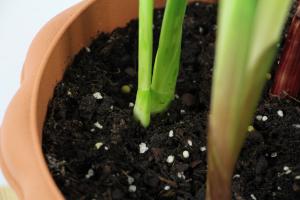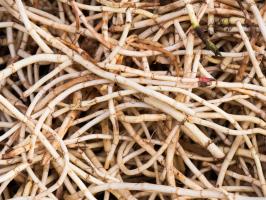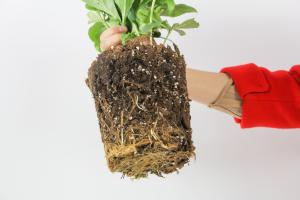What is the Best Fertiliser for Pot Plants?
Pot plants are a great way to bring nature indoors, but keeping them healthy can be a challenge if you don't provide them with the right nutrients. Fertilising your plants is essential for their growth and development. However, with so many options available, it can be difficult to determine the best fertiliser for your pot plants. In this article, we will explore the different types of fertilisers and help you select the best one for your pot plants.
Types of Fertilisers
When it comes to fertilisers for pot plants, there are two main types: organic and inorganic. Organic fertilisers are made from natural materials such as animal waste, bone meal, and compost. Inorganic fertilisers, on the other hand, are made from synthetic materials and contain nutrients such as nitrogen, phosphorus, and potassium.
Organic fertilisers are often preferred by gardeners as they are a more sustainable and environmentally friendly option. They release nutrients slowly over time, which can help prevent over-fertilisation and reduce the risk of nutrient burn. Inorganic fertilisers, however, are often cheaper and more readily available. They can provide rapid results and are often easier to use than organic options.
Choosing the Best Fertiliser
When choosing the best fertiliser for your pot plants, there are several factors to consider:
The type of plant: Different plants have different nutrient requirements. For example, flowering plants require more phosphorus, while foliage plants require more nitrogen.
The stage of growth: Young plants require more nitrogen for growth, while mature plants require more phosphorus and potassium for flowering and fruit production.
The type of soil: Some soils are naturally high in certain nutrients, which can affect the type of fertiliser you should use.
The type of fertiliser: As we have already discussed, organic and inorganic fertilisers have different benefits and drawbacks.
It is important to understand these factors before selecting a fertiliser for your pot plants. You should also consider the frequency of fertilisation, as over-fertilisation can be harmful to your plants. It is recommended that you read the label of any fertiliser you plan to use and follow the instructions carefully.
Option for Organic Fertilisers
If you want to use organic fertilisers for your pot plants, there are several options available:
Compost: Composting your kitchen scraps and yard waste is an excellent way to produce nutrient-rich compost for your plants.
Bone meal: Bone meal is a slow-release fertiliser rich in phosphorus and calcium. It is ideal for flowering plants but should be used sparingly as it can create an imbalance in the soil pH.
Fish emulsion: Fish emulsion is a liquid fertiliser that is high in nitrogen and other nutrients. It can be used as a foliar spray or added directly to the soil.
Manure: Animal manure is a rich source of nitrogen, phosphorus, and potassium. However, it should be aged or composted before use to prevent weed growth and reduce the risk of contamination.
Conclusion
In conclusion, the best fertiliser for your pot plants will depend on several factors, including the type of plant, the stage of growth, and the type of soil. Organic fertilisers are a sustainable and environmentally friendly option, while inorganic fertilisers can provide rapid results. It is important to understand the benefits and drawbacks of each type of fertiliser and read the label carefully before use. By selecting the right fertiliser, you can help ensure the health and vitality of your pot plants for years to come.

 how many times do yo...
how many times do yo... how many planted tre...
how many planted tre... how many pine trees ...
how many pine trees ... how many pecan trees...
how many pecan trees... how many plants comp...
how many plants comp... how many plants can ...
how many plants can ... how many plants and ...
how many plants and ... how many pepper plan...
how many pepper plan...

































